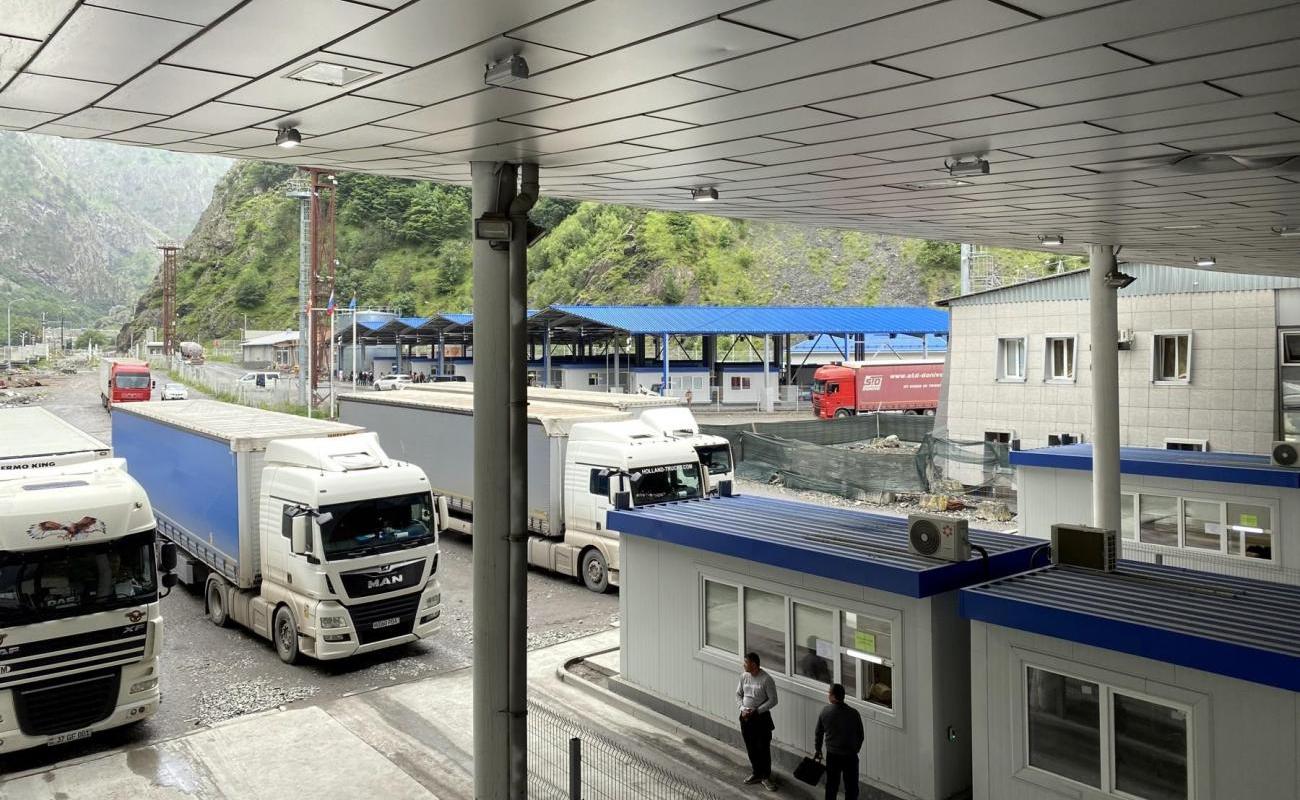Is Georgia doing Russia’s dirty work to make Armenia pay?

Russia has long used the food and beverage industry as an instrument of coercion. Georgians have experienced such pressure over the past two decades. And now some Armenians suspect Russia of doing the same to them, only this time, Moscow is using Georgians as enforcers.
In recent weeks, Armenian exporters have been experiencing lots of hassles transporting alcoholic beverages through Georgia destined for Russia, in particular enhanced customs inspections by Georgian officials. Exporters report prolonged checks and spontaneous laboratory testing are causing lengthy transit delays and serious financial losses, threatening access to lucrative export markets in Russia and the Baltic states.
On May 13, representatives of several Armenian alcoholic beverage exporters staged a protest outside the Georgian Embassy in Yerevan. The producers say that their shipments are not intended for sale within Georgia and thus they questioned the need for alcohol testing of transit cargo.
“We’re now paying $100 a day for every truck stuck in Georgia,” said Hayk Shahnazarian, owner of one of the affected companies, speaking to RFE/RL’s Armenian Service. “But that’s not our biggest loss. We could lose a market because of this and find ourselves on the brink of bankruptcy.”
On May 15, Armenia’s Economy Minister Gevorg Papoyan publicly addressed the issue, stating that “the reasons [for the delays] are not clear to us.” He also announced an intention to travel to Georgia to resolve the matter in person. This came just a week after Georgian Economy Minister Levan Davitashvili visited Yerevan to attend a bilateral business forum, where no mention of transit issues appeared in official statements.
Papoyan’s visit, however, has not happened yet. Just a week after his May 15 comments, the minister told reporters that Armenia was in the midst of “very active discussions” with Georgia, but that the situation was developing in a way that made his visit unlikely to have any effect.
Some in Yerevan suspect that Georgian officials are acting at the behest of Russia to disrupt Armenian exports. They note that over the past two years Georgia and Armenia have, in effect, traded geopolitical places: Yerevan was long the Kremlin’s strategic partner in the South Caucasus, but of late has tried to distance itself from Moscow while drawing closer to the United States and European Union. The Georgian Dream government has done the exact opposite over the same period — shunning Western values while reviving ties with Russia.
Russia has a history of using its trade leverage to punish what it sees as geopolitical disobedience. Georgians should know this better than anyone in the region. In 2006, as then-Georgian leader Mikheil Saakashvili pursued policies designed to qualify Georgia to join the EU and NATO, Russia imposed an embargo on Georgian wine that kneecapped the economy.
Despite Armenian worries about Tbilisi’s motives, Georgian authorities are reticent when discussing the matter. Representatives of the Georgian Revenue Service, a key agency overseeing customs operations, denied any change in policy or practice.
“Nothing out of the ordinary was taking place, standard customs procedures were being followed,” an agency representative told Eurasianet. “Some trucks had already left the country, while others were scheduled to depart soon. The Armenian Minister of Economy himself stated that an explanation would be provided. From our side, there was nothing unusual. Nothing has changed, regular border control procedures were in place before and continue as usual.”
Meanwhile, on May 15, the Russian newspaper Izvestia published a report on a meeting in Moscow between Georgian and Russian business representatives. The discussions reportedly touched on concerns over the quality of Georgian products, including cognac. The article stated that “the Georgian side promised to organize a new laboratory for these purposes in the near future” and mentioned plans to “tighten control over what is being transported through” the Upper Lars checkpoint, a major transit route for Armenian exports.
Although the Izvestia report did not mention Armenia or its products specifically, it coincides with the ongoing delays at the Georgian border. Allegations of quality shortcomings surrounding Armenian beverages are not new in the Russian market.
Georgian media outlets have reported a significant decline in cross-border traffic from Armenia. In April, land transit from Armenia through Georgia fell by 20.3 percent, compared to the same month in 2024, while total cargo volume declined by 30.2 percent. Border testing procedures, including on-the-spot laboratory checks, have reportedly been in place for approximately a month and a half.
